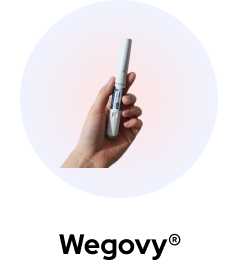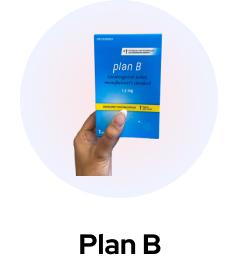Ozempic is a drug that has been proven to help control blood sugar and as an effective weight management tool, but what if you’re already taking metformin for type 2 diabetes or PCOS?
In this article we’ll cover:
- What Ozempic is
- What metformin is
- What happens if you take the two drugs together
- The benefits of taking both together
- The potential side effects
- Whether metformin and Ozempic are effective for weight management
- Understanding the relationship between the two drugs
- The main difference between the two drugs
- Frequently asked questions.
Let’s get straight into it.
What Is Ozempic?
Ozempic is a Health Canada-approved medication, initially developed to treat adults with type-2 diabetes. Created by drug company Novo Nordisk, it is part of a class of drugs called GLP-1 (glucagon-like peptide-1) receptor agonists.
Other GLP-1 receptor agonist prescription drugs on the market are liraglutide (sold as Saxenda and Victoza), Trulicity, and Bydureon.
Ozempic works to help control blood sugar levels and has also been shown to have great promise when it comes to treating obesity. It is approved for treatment of those with a BMI of 27 or higher who need help with weight management.
The active ingredient in Ozempic is semaglutide, which is also sold under the brand names Wegovy and Rybelsus. It is taken as a once-weekly self-administered subcutaneous injection.
How Does Ozempic Work?
Ozmepic works by mimicking the hormone GLP-1 in your body.
GLP-1 is released after meals and helps to regulate blood sugar. It does this in a few ways — firstly, it slows your digestion, which means that sugar enters the bloodstream more slowly. Secondly, it prompts your pancreas to produce insulin, which helps lower blood sugar.
In addition, it suppresses glucagon, a hormone that tells the liver to release stored sugar into your blood. Together, these functions control blood sugar spikes post meals, as well as lead to reduced appetite.
These things together may be able to put you into a caloric deficit, which could effectively assist with weight management.
Metformin is a type-2 diabetes drug that has been used for decades. It is popular due to its success in controlling blood sugar levels without causing hypoglycemia (low blood sugar).
It is taken in tablet form in a variety of different doses depending on patient needs. Although most commonly prescribed for type-2 diabetes, it is sometimes prescribed for patients with other conditions, including type 1 diabetes, PCOS (polycystic ovarian syndrome), and prediabetes.
How Does Metformin Work?
Metformin has a few different mechanisms of action. It decreases glucagon production in the liver, which reduces how much sugar enters the bloodstream. It also makes your cells more sensitive to insulin, so that sugar is removed from the blood quicker and slows food absorption in the gut.
Together, these effects allow metformin to lower blood sugar, which helps manage type-2 diabetes.
Can you take metformin and Ozempic together?
Yes, you can take Metformin and Ozempic together. This combination is commonly prescribed for type 2 diabetes to improve blood sugar control. Metformin reduces liver glucose production, while Ozempic enhances insulin secretion and slows digestion. Using both can lower A1C levels and aid in weight management.
Why take metformin and Ozempic together?
Metformin and Ozempic are taken together to improve blood sugar control in type 2 diabetes. Metformin reduces glucose production in the liver, while Ozempic increases insulin secretion and slows digestion. Combining them enhances effectiveness, lowers A1C levels, and may support weight loss. Doctors prescribe both when one medication alone is insufficient.
When Ozempic is taken concurrently with metformin, there are a range of potential benefits.
Enhanced Control of Blood Sugar Levels
Because the drugs control your blood sugar in different ways, they can work together to give you enhanced blood sugar control.
Ozempic works by slowing digestion, inhibiting glucagon, and increasing insulin production.
Metformin decreases glucose production, increases insulin sensitivity, and reduces glucose absorption.
Together, these processes can give a diabetic better overall blood sugar control.
Diminished Risk of Cardiovascular Incidents
One of the major benefits of Ozempic is that it comes with a decreased risk of cardiovascular events, including heart attack, heart failure, and stroke. It also has been shown to improve high blood pressure, which is associated with improved cardiovascular outcomes.
Metformin has also been found to reduce the risk of cardiovascular mortality, so when it is taken together with Ozempic, the two drugs help to diminish the risk of cardiovascular incidents.
Optimal A1C Level Management
Both Ozmepic and Metformin lower A1C levels, which is a key indicator of blood sugar control.
Clinical studies have shown that Ozempic at an average dose can reduce A1C levels by 1.4% while metformin can reduce A1C levels by 1.5%.
Taken together, Ozempic complements the action of metformin and can help get your A1C levels into the desired range.
Minimized Probability of Diabetic Complications
When you have improved A1C control and overall blood sugar control, you have a much lower chance of experiencing diabetic complications. Complications can include:
- Nerve damage
- Kidney disease
- Eye problems
- Cardiovascular disease.
Weight management is also another way to reduce the risk of diabetic complications, and Ozempic has shown to have considerable potential in this.
What Are the Potential Side Effects of Taking Ozempic and Metformin Together?
Taking Ozempic and Metformin together may cause side effects like nausea, diarrhea, stomach pain, and loss of appetite. Other possible effects include low blood sugar, bloating, and fatigue. These symptoms are usually mild but should be monitored by a doctor to ensure safe use.
Side Effects of Taking Ozempic With Metformin
With Metformin, patients may experience:
- Nausea or upset stomach
- Diarrhea
- Loss of appetite
- Bloating or gas
- Heartburn
- Weakness or lethargy
- Metallic taste in the mouth.
With Ozempic, patients may experience:
- Nausea
- Vomiting
- Diarrhea
- Abdominal pain
- Constipation
- Reduced appetite
- Skin reactions at the injection site.
As you can see, some of those side effects overlap, particularly the gastrointestinal side effects. This means that combined use leads to a greater risk of gastrointestinal side effects compared to just taking one or the other.
There are also a number of more serious but rare side effects you may experience while on Ozempic. These include:
- Pancreatitis (inflammation of the pancreas)
- Changes in vision (diabetic retinopathy)
- Low blood sugar (hypoglycemia)
- Kidney problems
- Gallbladder issues
- Severe allergic reactions
- Thyroid cancer.
If you experience any of the above, discontinue your use of Ozempic immediately and contact your medical team, or go directly to your local ER.
Ozempic is contraindicated for patients with a personal or family history of thyroid tumors, especially medullary thyroid cancer (MTC) or multiple endocrine neoplasia type 2 (MEN 2). This is because animal studies have found that taking GLP-1 receptor agonists can lead to an increase in thyroid tumor risk.
Additionally, if you are pregnant, breastfeeding, or intending on conceiving in the next two months, you should not take Ozempic and should discuss your treatment with your medical team.
Understanding Gastrointestinal Issues
Both Ozempic and metformin can cause gastrointestinal issues, as they both alter the digestion process. There are some differences in the mechanisms, however.
Ozempic slows digestion and delays gastric emptying, while metformin reduces glucose absorption.
Both of these side effects tend to become less severe as the patient adjusts to their dose. It’s important to start slowly and ramp up your dose as you get used to the medication.
Understanding the Risk of Lactic Acidosis with Long-Term Use of Metformin
Lactic acidosis is a rare side effect of metformin use, but it is very serious when it occurs.
It happens when lactate builds up in the bloodstream, and can lead to weakness, abdominal pain, and shortness of breath. It is more likely in patients with reduced kidney function.
Skin Reactions and Allergic Response
A local skin reaction is relatively common at the injection site when taking Ozempic. The patient must ensure they rotate the injection site each time, to avoid unnecessary irritation.
Both medications have the potential for an allergic reaction, and it’s important to stay vigilant for this when you first start taking any medication.
Symptoms that indicate an allergic reaction include:
- Swelling of the face, tongue, or throat
- Hives
- Difficulty breathing.
If you experience any of the above, discontinue your use of Ozempic and contact your medical team, or go to your local ER immediately.
Controlling Hypoglycemia Risks When Combining Both Drugs
It is possible, though rare, for both metformin and Ozempic to cause hypoglycemia. Combining the two drugs can increase the risk, so it’s important to monitor your blood sugar carefully.
Symptoms of hypoglycemia include:
- Shakiness
- Dizziness
- Confusion and irritability.
If you experience any of the above, discontinue your use of Ozempic and contact your medical team, or go to your local ER immediately.
Can You Use Metformin and Ozempic Together for Weight Loss?
Yes, Metformin and Ozempic can be used together for weight loss. Metformin improves insulin sensitivity and reduces appetite, while Ozempic slows digestion and decreases hunger. This combination can enhance weight loss in people with type 2 diabetes or obesity.
While not approved for weight management, it may still lead to a small body weight decrease in some.
Ozempic and metformin together for pcos
Ozempic and Metformin can be used together for PCOS to improve insulin resistance, regulate blood sugar, and support weight loss. Metformin lowers glucose production, while Ozempic slows digestion and reduces appetite. This combination may help manage symptoms like irregular periods and hormonal imbalances. A doctor should oversee treatment.
Ozempic and metformin work well together because they use complementary mechanisms. Both control blood sugar and improve insulin levels, but they do so through different pathways, meaning they complement each other well.
Why Would a Medical Professional Prescribe Both Ozempic and Metformin?
The two drugs might be prescribed together if one medication (usually metformin) had been tried and it wasn’t successfully controlling blood glucose levels.
An individual with diabetes who was on metformin for blood sugar might also be prescribed Ozempic for its weight management benefits, as successfully managing your weight also has a lot of benefits for those with diabetes.
How Much Weight Can You Shed on Ozempic and Metformin Combined?
Studies show people taking Ozempic lost on average around 15 kg in 68 weeks. Metformin results were more modest, with one study showing patients taking metformin generally lost about 2 kg over a year.
The most important factor in weight management is your diet and lifestyle choices, however. Neither drug is a magic bullet, and they need to be combined with a healthy diet and regular exercise to see results.
While there is no specific diet you should follow while on Ozempic or metformin, eliminating high-fat content and high-sugar foods from your diet is recommended. Additionally, increasing your protein and fibre, as well as keeping up your hydration is highly recommended.
Not only will you achieve better results this way, you may also lessen some of the gastrointestinal side effects of both drugs.
What is the Difference Between Ozempic and Metformin
The main difference between Ozempic and metformin is their mechanism of action. Ozempic is a GLP-1 receptor agonist and works by delaying gastric emptying, reducing glucagon secretion, and increasing insulin production.
Metformin, on the other hand, is part of a class of drugs called a biguanide. It works to reduce the amount of glucose produced by the liver, increases insulin sensitivity, and causes the intestines to absorb less glucose.
The method of taking the drugs also differs — Ozempic is a once-weekly injection, while metformin is taken orally in tablet form.
Key Takeaways
Ozempic and metformin are both diabetes drugs, but they work in different ways.
Ozempic is a GLP-1 receptor agonist, which slows digestion, inhibits glucagon, and increases insulin levels. Metformin decreases glucose production by the liver, increases insulin sensitivity, and reduces the absorption of glucose.
It’s possible to take both drugs together to enhance blood sugar control, particularly A1C levels. Both drugs also reduce the risk of cardiovascular events and reduce the likelihood of diabetes complications.
While Ozempic and metformin are both designed as diabetes drugs, they may help with weight management — particularly Ozempic.
The most common side effects for both drugs are gastrointestinal, and taking both of them together can increase the risk for stomach complaints such as diarrhea and nausea.
Although the drugs have some similarities, they have different mechanisms and are administered in different ways. It’s essential to ensure you monitor your blood sugars and are under the supervision of your medical team if you’re taking this drug combination.
For more information, ask your medical team, Nurse Practitioner, or pharmacist.
Frequently Asked Questions
How Much Weight Can You Shed on Ozempic and Metformin Combined?
Studies show people taking Ozempic lost on average around 15 kg in 68 weeks. Metformin results were more modest, with one study showing patients taking metformin generally lost about 2 kg over a year.
The most important factor in weight management is your diet and lifestyle choices, however. Neither drug is a magic bullet, and they need to be combined with a healthy diet and regular exercise to see results.
While there is no specific diet you should follow while on Ozempic or metformin, eliminating high-fat content and high-sugar foods from your diet is recommended. Additionally, increasing your protein and fibre, as well as keeping up your hydration is highly recommended.
Not only will you achieve better results this way, you may also lessen some of the gastrointestinal side effects of both drugs.
Can You Use Metformin and Ozempic Together?
Combining metformin and Ozempic can help with weight management, but it is unlikely your medical team would prescribe metformin for weight management purposes.
While not approved for weight management, it may still lead to a small body weight decrease in some.
Ozempic is known for its ability to reduce appetite and aid with weight management, so combining the two drugs can lead to effective weight management for patients with type-2 diabetes.
What is the ideal time gap between taking Ozempic and metformin?
There is no requirement for a gap between these medications as they are taken via different methods. Ozempic is taken by weekly injection, while metformin is taken orally on a schedule prescribed by your doctor.
Can these medications interact with other commonly prescribed drugs for diabetes?
Yes, these medications can interact with other diabetes medications, leading to drug interactions. Both can lead to hypoglycemia when combined with other medications that lower blood sugar, such as insulin.
There are no known interactions between Ozempic and the following diabetes medications:
- Januvia
- Invokana
- Farxiga
- Jardiance
- Steglatro
However, that does not mean that there may not be existing interactions. It’s essential to talk to your medical team so they may continue to monitor you.
Are there any lifestyle changes recommended while on this combined treatment?
Lifestyle changes are essential if you want to get the most out of this combined treatment, particularly if your aim is improved weight management.
Maintaining a balanced diet, getting regular exercise, reducing alcohol intake, and keeping on top of your blood sugar monitoring are crucial.
Consult with your medical team to get personalized advice about what will work best for you.













 (US)
(US)